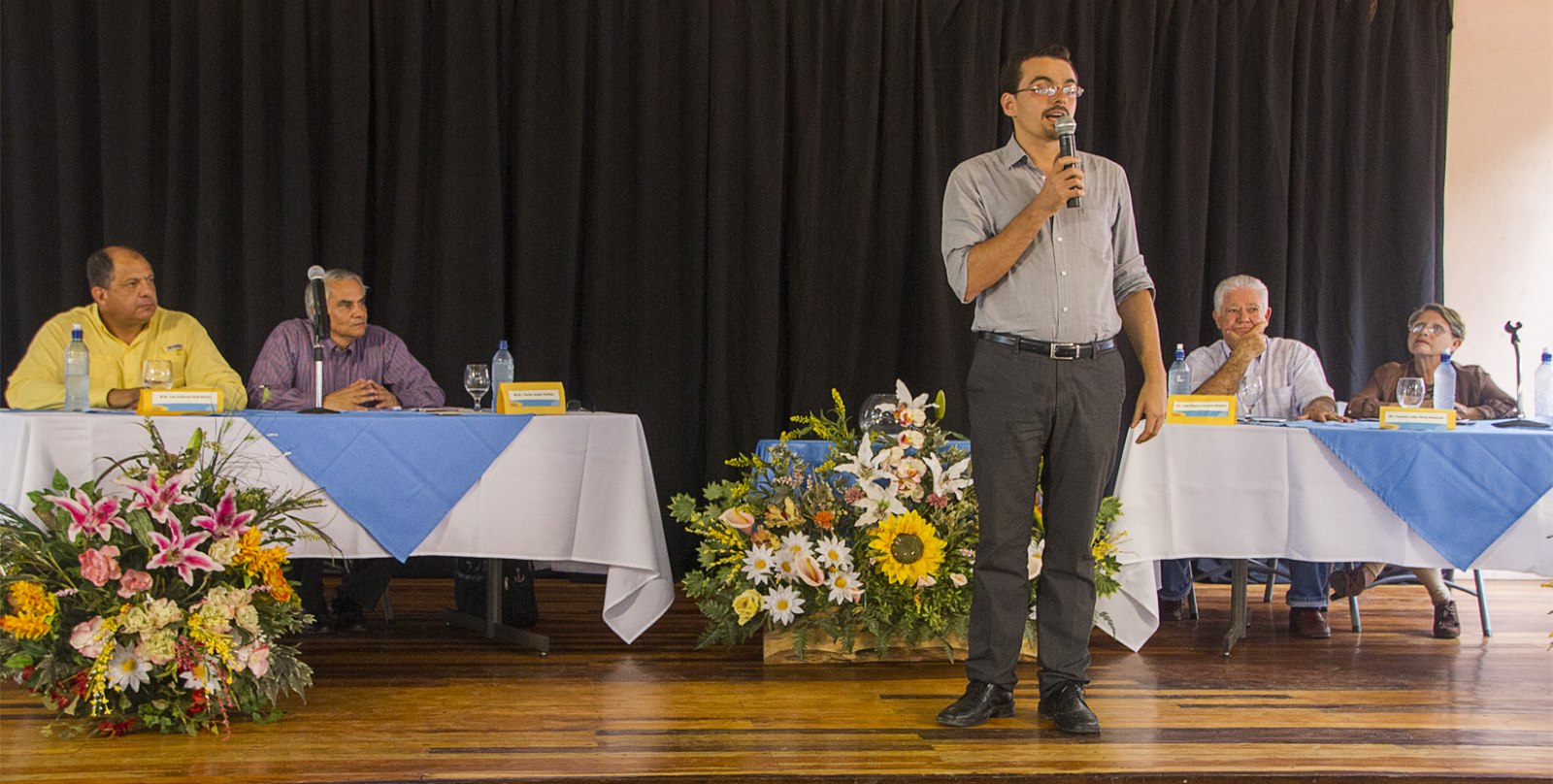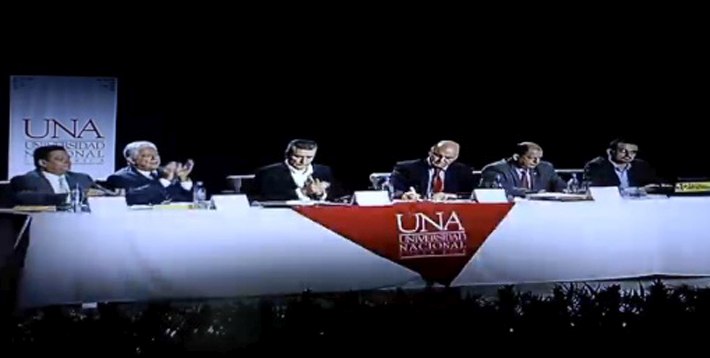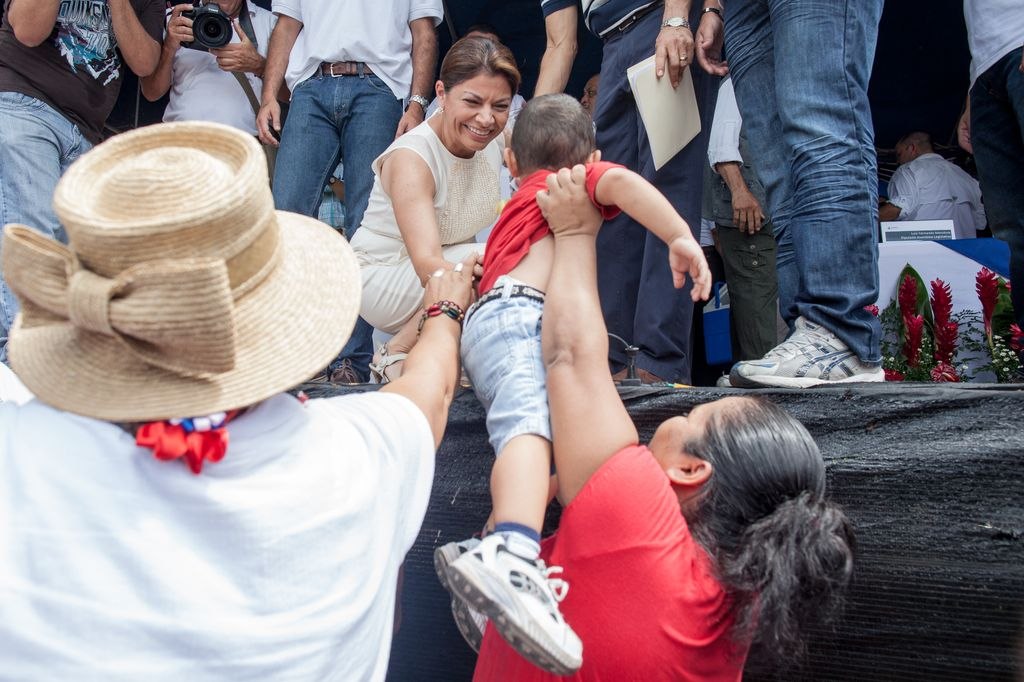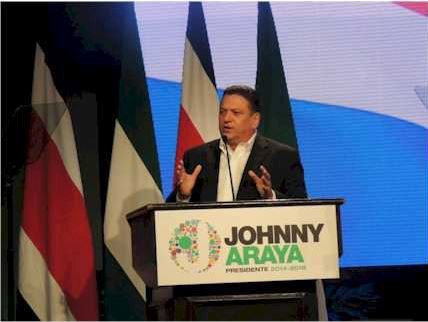
In a college atmosphere, the Youth and Politics Presidential Forum was attended by approximately 1000 people in the amphitheater of the University of Costa Rica (UCR) campus in Liberia on Wednesday, November 6.
The activity was attended by presidential candidates Jose Maria Villalta of the Broad Front (FA- Frente Amplio) party, Jose Miguel Corrales, New Homeland (PN- Patria Nueva) and Luis Guillermo Solis of the Citizens Action Party (PAC- Partido Accion Ciudadana).
Also present were vice presidential candidates Carlos Araya of the Social Christian Unity Party (PUSC-Partido Unidad Social Cristiana), representing Rodolfo Piza, and Carla Lidia Perez of the National Advancement Party (PAN-Partido Avance Nacional), in place of Jose Manuel Echandi.
Meanwhile Johnny Araya of the National Liberation Party (PLN-Partido Liberacion Nacional), and Otto Guevara of the Libertarian Movement (ML-Movimiento Libertario) were abscent. The reason for their absences was because both had their schedules full, according to Luis Murillo, a member of the UCR Guanacaste Conferences group.
The debate began with a round of questions previously prepared by UCR Liberia students and faculty. Each candidate had no more than five minutes to select and respond to the questions. Unemployment, education, economy and natural resources were the main issues addressed during the discussion.
Guillermo Solis was the first to refer to the question about the problems faced by women in Guanacaste and the lack of decent jobs and educational opportunities. “We must reduce the number of premature births of Guanacaste youth, applying sex education programs since high school. In addition, we need to generate quality employment by stimulating academic and technical skills and access to opportune credit for youth through the development bank,” explained Solis.
Carlos Araya addressed the question of the environmental impact and ecological costs of the province and said, “We believe in a model based on the ecological wealth of the province… We have to exploit the beaches but for Guanacaste, not for large transnational corporations.”
Overall, Jose Maria Villalta was the candidate who got the most applause from the youth who listened carefully to his explanations regarding employment problems in the area. “How could there not be employment if they closed the CNP (National Production Council) and the agricultural production. In Guanacaste, the (banana) enclave model continues; there are more positions but with bad pay,” he said.
Jose Miguel Corrales explained his viewpoint on education: “Education should teach us to be happy and not wealthy citizens,” he said and highlighted the importance of academic formation, ethical values, the arts and an obligatory second language.
On the same subject of education, Carla Lidia Perez said, “Education has erred. Many young people choose education (a career) because they believe it is the easiest and it’s not like that. In addition, teachers are overloaded with work and we have to eliminate the paperwork. Education is in decline due to those on the inside.”
At the end of the debate, the candidates had a final round where they could explain their proposals for the government and criticisms of the other candidates. Jose Maria Villalta began his critique by noting that “if presidential candidates don’t show their faces now, much less so when they are in power,” referring to the absence of Otto Guevara and Johnny Araya. Then he spoke of the apathy of citizens towards politics and the need to go out and vote. “That’s what they want (the other parties). When you say you will not vote, they are rubbing their hands.”
In addition, Villalta referred to “the long neoliberal night we have lived” and asked those present to notice “who have been with you over the years” and concluded by saying, “There is hope for Guanacaste and Costa Rica.”
The next to speak was Jose Miguel Corrales, who said, “Do not pay attention to what we say but what we do,” and pointed out that Guanacaste traded the livestock and agriculture development model for that of the “grand hotel.”
Lidia Perez Carla mentioned that the National Advancement Party “will be focusing our objectives on improving education and quality of life.”
Carlos Araya called for attention and mentioned that “the greatest danger of Costa Rica is the dictatorship in democracy.”
Luis Guillermo Solis focused his criticism on the candidate Johnny Araya and said that if in he hasn’t done any substantial works in 26 years of public service, much less so will he do so in four years as president, and ended by saying, “How much do we miss sensibility and common sense in politics.”
The moderator of the debate was Francisco Enriquez Solano, professor at the Faculty of Social Sciences at UCR. On November 20, a second debate will be held with the candidates for legislator for Guanacaste.







Comments